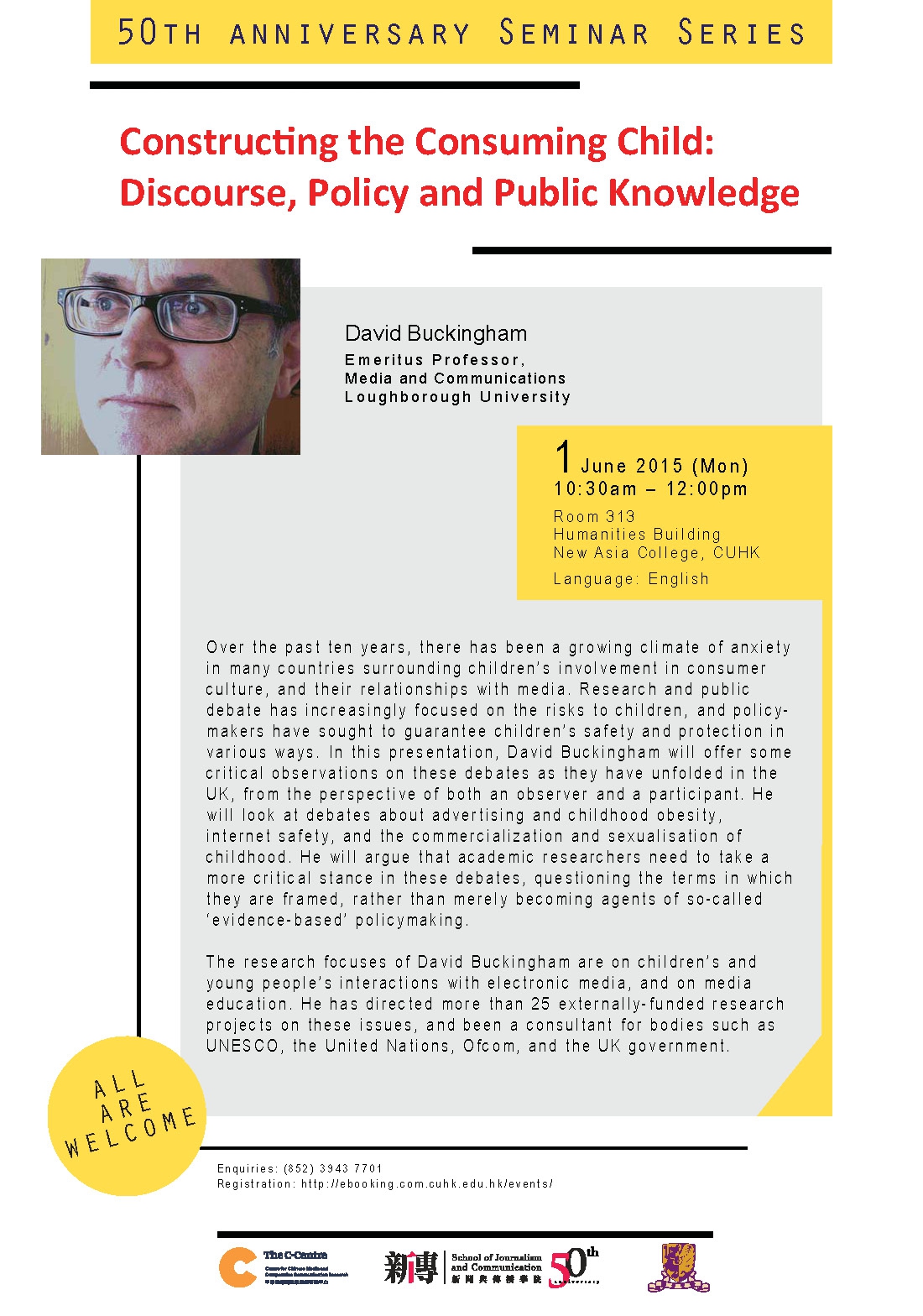活动
School of Journalism and Communication 50th Anniversary Seminar Series: Public Talk by Prof. David Buckingham
2015年6月1日
上午10时半至下午12时正
人民馆313室 (C研中心)
David Buckingham (Emeritus Professor, Media and Communications, Loughborough University)
David Buckingham is an Emeritus Professor of Media and Communications at Loughborough University. His research focuses on children’s and young people’s interactions with electronic media, and on media education. He has directed more than 25 externally-funded research projects on these issues, and been a consultant for bodies such as UNESCO, the United Nations, Ofcom, and the UK government. His most recent books are The Civic Web: Young People, the Internet and Civic Participation (2013) and Youth Cultures in the Age of Global Media (2014). His personal website is: http://www.davidbuckingham.net.
manlokchan@cuhk.edu.hk
Ms. Mandy Chan
Prof. David Buckingham will give a public talk on the topic of Constructing the Consuming Child: Discourse, Policy and Public Knowledge on Monday, 1 June 2015.
Over the past ten years, there has been a growing climate of anxiety in many countries surrounding children’s involvement in consumer culture, and their relationships with media. Research and public debate has increasingly focused on the risks to children, and policy-makers have sought to guarantee children’s safety and protection in various ways. In this presentation, David Buckingham will offer some critical observations on these debates as they have unfolded in the UK, from the perspective of both an observer and a participant. He will look at debates about advertising and childhood obesity, internet safety, and the commercialization and sexualisation of childhood. He will argue that academic researchers need to take a more critical stance in these debates, questioning the terms in which they are framed, rather than merely becoming agents of so-called ‘evidence-based’ policymaking




